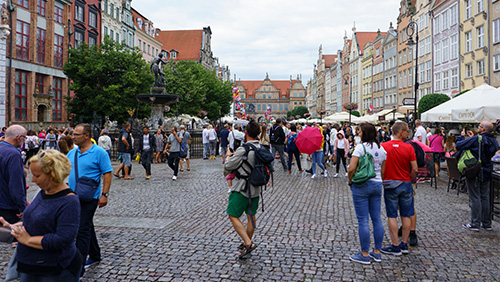The illegal gambling market in Poland is alive and kicking, despite efforts to eradicate the country of the activity. The Gambling Act that was revised in 2017 was meant to better shape regulated gambling and push out the illicit operators, but it is a task that is proving to be more challenging than expected. This is according to a new study conducted by the Polish Supreme Audit Office (NIK, for its Polish acronym), which is now pushing for even more oversight and regulations.
 From 2015 to 2018, Poland’s online gaming activity grew from $1.27 billion to $2.02 billion. This figure includes both regulated and unlicensed operations, but the regulated market has been gaining ground. Last year, the amount of bets taken by licensed operators had increased 600% to $989.8 million.
From 2015 to 2018, Poland’s online gaming activity grew from $1.27 billion to $2.02 billion. This figure includes both regulated and unlicensed operations, but the regulated market has been gaining ground. Last year, the amount of bets taken by licensed operators had increased 600% to $989.8 million.
As such, the illicit market is still strong, although it isn’t growing at the same pace. Unlicensed online operators reportedly accounted for 51% of the market over the three-year period and had seen an increase of 42% in the number of wagers received.
In 2017, Poland made changes to the Gambling Act that imposed a 12% turnover tax, the same that land-based operators pay, on online gambling. The move certainly helped, as Poland increased its gambling tax revenue from $418.42 million in 2017 to $484.75 million last year. However, the amount isn’t close to what the government expected. 2019 should prove to be better.
Part of the reason that there has been difficulty advancing the market is because of Poland’s decision to maintain a monopoly with the government-owned Totalizator Sportowy online casino and lottery operator. Monopolies never encourage competition and always lead to reduced financial success.
There has also been a withdrawal by several big names, such as William Hill, bet365 and Unibet, for various reasons. While 14 sportsbook licenses have been issued, the absence of some of the biggest players in the industry has weakened the forward momentum.
The reduced return in state gambling revenue can be traced to several factors, all of which have now been corrected. Totalizator was slow to introduce new casino and online products, with most not appearing until at least the third quarter – some in the fourth quarter – of last year. Now that those products have been rolled out, 2019 could potentially see a big revenue boost.
There’s still more to do, according to the NIK, to clean up Poland’s gambling landscape. It would like to see the Ministry of Finance be given more power to help eliminate the illegal operators and to be able to track financial activity. It also wants more stringent control over telecommunications companies and payment providers, both of which the agency asserts are implicit in allowing illegal gambling and aren’t doing their duty in preventing access to illicit sites.
Commercial companies should be cognizant of their duties and act accordingly, within the scope of laws and regulations. By not doing so, they’re only inviting greater government intervention and control, which will harm the companies, as well as consumers.